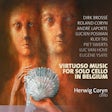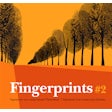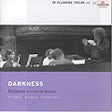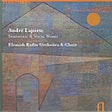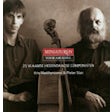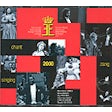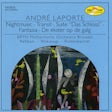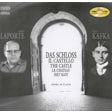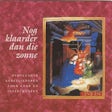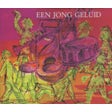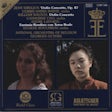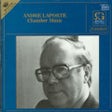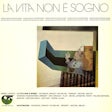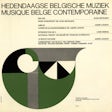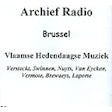André Laporte
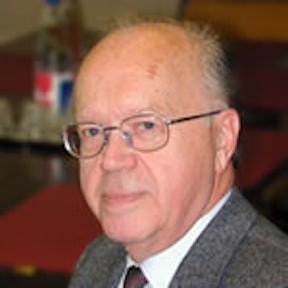
André Laporte
André Laporte was born on 12 July 1931 in Oplinter near the city of Tienen in Flemish Brabant. He was self-taught as a musician, quickly mastering the piano, clarinet and organ, while enthusiastically acquainting himself with modern music — as did his contemporary, Karel Goeyvaerts – through the radio programs of Paul Collaer, Louis De Meester, Vic Legley and David Van de Woestijne.
After completing secondary school he entered the Interdiocesan Higher Institute for Church Music (known as the Lemmens Institute) in Mechelen, where he studied under Edgard de Laet, Flor Peeters (organ) and Marinus De Jong (piano, counterpoint, fugue). Between 1953 and 1957 he was also a student at the Catholic University of Leuven, where he studied modern philosophy and musicology. He completed his studies in musicology with a comparative study of Ludus Tonalis and the Unterweisung im Tonsatz by Paul Hindemith. In 1953 he became a teacher of musical education and aesthetics at the Secondary Normal School of the St Thomas Institute (Middelbare Normaalschool van het Sint-Thomasinstituut) in Brussels. In this same period he composed his first works, folksong arrangements along the lines of Hindemith and Bartok, as well as a piano sonata and works for organ.
Laporte became acquainted with the music of Schönberg, Stravinsky and Messiaen and was from 1960 to 1964 an annual participant at the Internationale Ferienkurse in Darmstadt, as well as the Kurse für Neue Musik in Cologne in 1964 and 1965. These courses gave him the opportunity to meet leading figures in the New Music movement (including Boulez, Maderna, Berio, Ligeti, Stockhausen, Kagel and Gielen). Like so many Belgian composers, he worked at the Belgian Radio (BRT, now VRT), first as a producer, later as a program coordinator, a production leader of the BRT Philharmonic Orchestra (1989) and ultimately as director of Artistic Ensembles (1993-1996), functions in which he was surrounded by such figures as D. Van de Woestijne, V. Legley, K. Goeyvaerts, L. De Meester, B. Buckinx, W. Westerlinck and L. Brewaeys. This position also gave him the chance to broadcast programs on “highlights of contemporary music” and “young Belgian performers”. Together with individuals from the Institute for Psycho-Acoustic and Electronic Music (IPEM), which had recently been set up by the BRT, he founded the SPECTRA work-group, which existed from 1963 to 1967.
Laporte also won his spurs in music education. As early as 1968 he taught the New Techniques course at the Royal Conservatory in Brussels; this teaching position took on more solid form with his appointment as a teacher of music analysis, theory of musical form, harmony and counterpoint-fugue. In 1988 he became a teacher of composition, a position to which was added an appointment as teacher of composition at the Queen Elisabeth Music School (Muziekkapel Koningin Elisabeth) in Waterloo. Among his students may be mentioned Luc Brewaeys, Daniël Capelletti and Peter Swinnen.
In 1972, together with Herman Sabbe, he set up a new Belgian branch of the International Society for Contemporary Music (ISCM), of which he has remained the chairperson to this day.
André Laporte became a member of the Belgian Royal Academy for Sciences, Arts and Fine Art (1991), a member of the Flemish Music Board (Muziekraad voor Vlaanderen) and assistant chairperson of the Association of Belgian Composers (Unie van Belgische Componisten). He has won numerous prizes. Besides the Lemmens-Tinel prize, he won the Prix Italia in 1976 for his oratorio La vita non è sogno. The premiere of this work at the Flanders Festival in 1972 in Ghent attracted the attention of festival assistant Gerard Mortier, who as intendant at La Monnaie in Brussels would subsequently invite him to write an opera. His work has been performed both in Belgium and abroad; in particular, his Kafka opera, Das Schloss, was premiered at La Monnaie in 1986 and received its German premiere in the Saarländisches Staatstheater in Saarbrücken in 1991.
Artists and performers
Flanders Arts Institute
Expertise centre for performing arts, music and visual arts.

